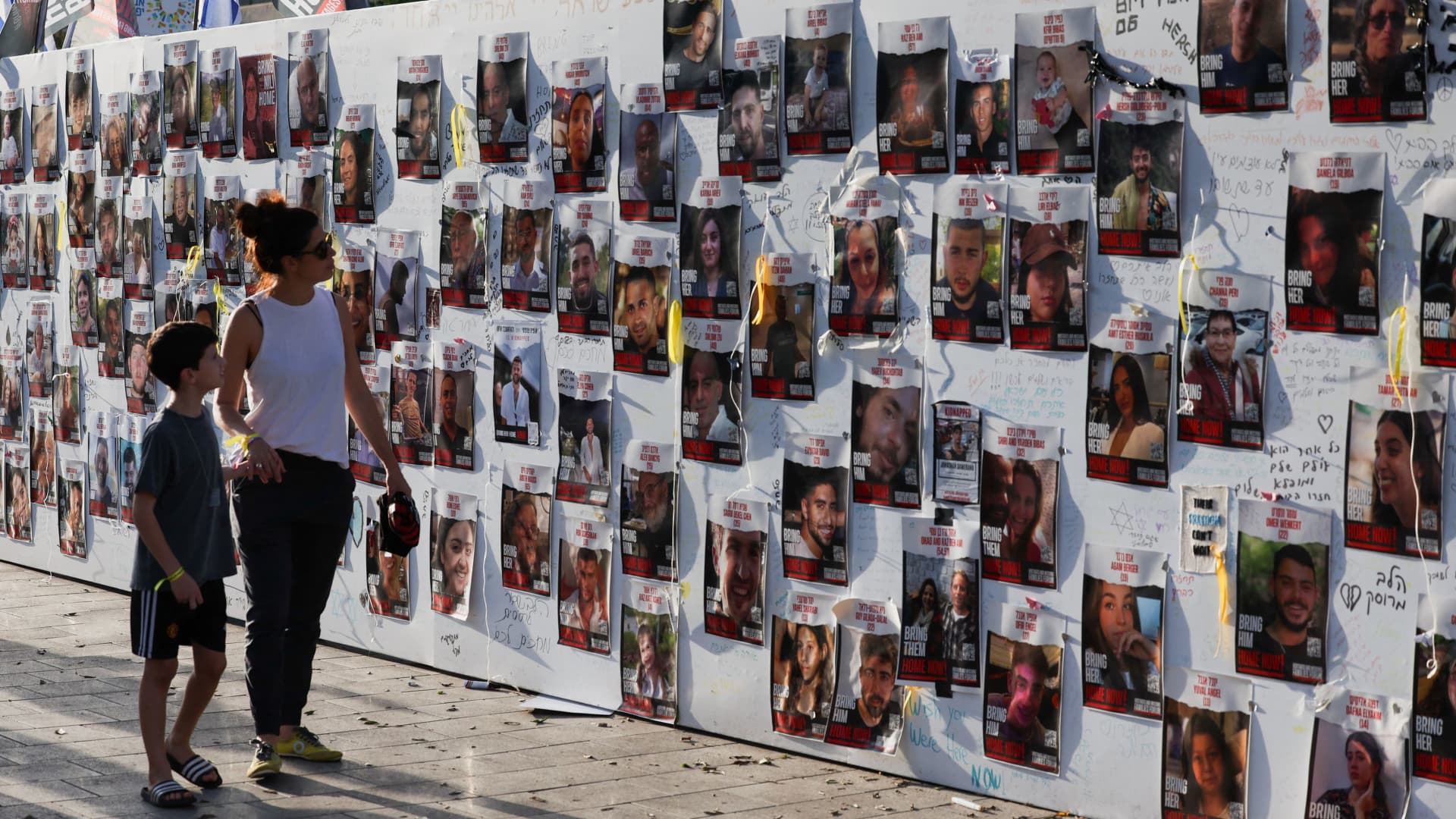A deal between Israel and the militant group Hamas to release some hostages could be reached in the coming days, though no terms have been finalized yet, according to several U.S. officials.
“We think that we are closer than we have been, perhaps at any point since these negotiations began weeks ago,” U.S. Deputy National Security Advisor Jonathan Finer said Sunday on CNN’s “State of the Union.”
Officials have been tight-lipped when speaking publicly on the hostage negotiations, due to the sensitive and malleable nature of the talks. They have made it clear, however, that nothing has been decidedly settled.
For example, White House officials rejected the premise of a Washington Post story reported on Saturday stating that a “tentative deal” had been reached. The Post, citing people familiar with the negotiations, said that Israel and Hamas had come to an agreement to release roughly 50 of Hamas’ hostages and in return, Israel would temporarily pause its combat operations for five days.
After the story published, White House National Security Council spokesperson Adrienne Watson posted on X, formerly Twitter, to clarify that no such deal had been officially reached. The Post did not issue a correction but eventually changed the headline of the story to state that the deal was “close” rather than tentatively complete.
Hamas is currently holding roughly 240 hostages. Many of the hostages are believed to be from foreign countries, including about a dozen Americans. Hamas released four hostages after earlier negotiations arbitrated by Qatar.
As the current deal appears to inch closer to a final version, here are some lingering questions and what we know so far.
When might a deal be reached?
The timeline for the deal appears to have become a matter of hours and days, not weeks.
Israeli ambassador Michael Herzog said on ABC’s “This Week” that “a significant number of hostages” could be free “in the coming days.”
Deputy National Security Advisor Finer nodded to that timeframe in his CNN interview, noting that the U.S. is working intensely “over the course of the coming hours and days” to get a deal done.
Reaching a deal this week is not certain — a variety of factors could disrupt and prolong the negotiations. But Herzog and Finer on Sunday expressed optimism that the talks were nearing fruition.
“The less we go into the details, the better the chances of such a deal, but they are very serious efforts,” Herzog said.
What is the holdup?
The negotiations are reportedly in their final phase and are now focused on working out more minor details.
Qatari Prime Minister Sheikh Mohammed Bin Abdulrahman al-Thani said at a Sunday press conference that many of the major points of contention have been worked through in the hostage deal and all that is left is to settle logistical terms.
Negotiations have been stalled at different points over the past few weeks. For example, in late October, the discussions broke down after Hamas refused to cooperate until Israel allowed fuel to come into Gaza.
The more major sticking points have been settled, according to Finer: “There are areas of difference in disagreement that have been narrowed, if not closed out entirely.”
How many hostages would be released?
Finer said Sunday on ABC’s “This Week” that the deal would “certainly” lead to the release of “more than dozens” of hostages.
Would a deal lead to a cease-fire?
Israeli Prime Minister Benjamin Netanyahu has repeatedly said that Israel will not begin to consider a cease-fire until all of Hamas’ hostages have been released.
With the current work-in-progress deal, Israel is only considering a temporary pause in attacks that would allow for the safe passage of the released hostages, not a wholesale cease-fire.
“We’re talking about pausing the fighting for a few days so we can get the hostages out. So it’s not a cease-fire,” said Herzog.
Hundreds of thousands of demonstrators have gathered around the world in the weeks since the Oct. 7 attack by Hamas demanding a cease-fire. As the death tolls in Gaza push higher, some government officials have joined the choir of those demands. But Israeli officials including Netanyahu and Herzog have rebuffed those calls, claiming that a cease-fire would allow Hamas to regroup and restore their resources to launch another attack against Israel.

